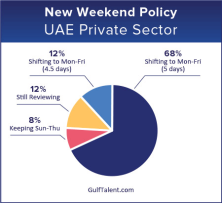
Hurry, Hurry!!!
Golden opportunity for everyone, Refer your friend or relative as a Care Worker in Malta via EFM Group and be rewarded with AED 1000.
The bonus will be applicable from December 1st to December 31st registrations.
To Register - https://www.efmcorporate.com/signup.php
Choose "Friend" on the list, and fill in the referred person's Full Name and MOB number in How did you hear about us? area upon registration.
*Fill in the referred person's name in How did you hear about us? area upon registration.*

Progress report published today outlines timing and plans for achieving the milestone
Extra nurses will help the NHS recover from the pandemic, tackle COVID backlogs and ensure it continues providing world-class care in the years to come
The government is on track to meet its manifesto commitment to deliver 50,000 more nurses in the NHS by 2024, with over 27,000 more nurses now working across the NHS.
A progress report published today shows that overall total nurse numbers now stand at 327,907, as of December 2021, compared to 300,904 in September 2019. By March 2024, there are set to be around 351,000 full-time equivalent nurses to provide world-class care across the health service. The new report also sets out the government’s plans for reaching the target.
More info - https://www.gov.uk/government/news/government-over-halfway-to-delivering-50000-more-nurses-by-2024

Implementation challenges include serving GCC-based clients, not knowing plans of other UAE firms, and accommodating Friday prayers for Muslim employees.
An overwhelming majority of the UAE private sector companies plan to shift immediately to the new Monday-to-Friday working week adopted by the UAE government, according to the latest survey conducted by the Middle East online recruitment firm, GulfTalent.
The research, which was conducted between 27-29 December, asked top management of local and multinational companies in the UAE about their plans regarding their working week. Overall 80% of respondents reported planning to follow the public sector in shifting to a Monday-to-Friday week from the start of January 2022. This consisted of 68% who will work five full working days, and 12% who are adopting a four-and-a-half day working week, with Friday being a half-day.
By contrast, only 8% of companies mentioned that they had decided to maintain their current Sunday-to-Thursday week. The remaining 12% reported being undecided and still reviewing their decision.

Entry Requirements
Entry requirements depends on the colour attributed to the country/zone of departure, according to Malta’s national classification as per Legal Notice 244 of 2020. Countries/Zones are currently classified as Red and Dark Red. When determining whether travel rules for red or dark red countries/zones apply in their case, travellers need to consider the classification of the countries/zones they have resided in and/or transited through in the 14 days prior to their travel:
If all countries/zones resided in and/or transited through are classified red, then the travel requirements applicable to passengers travelling from red countries/zones apply as detailed below.
?If ANY of the countries/zones resided in and/or transited through are classified dark red, then the travel requirements applicable to passengers travelling from dark red countries/zones apply as detailed below..***
More Details - https://deputyprimeminister.gov.mt/en/health-promotion/covid-19/Pages/travel.aspx

Credits Bryan Barajas ,
The end of 2019 signaled the beginning of a new paradigm in healthcare. The World Health Organization named 2020 the Year of the Nurse and the Midwife to highlight the vital role nurses play in healthcare delivery. Global health organizations sparked this initiative before COVID-19 emerged, and with cases continuing to spike across the globe, the role of nurses has never been more critical.
But the Year of the Nurse and the Midwife and similar initiatives do more than celebrate the hard work and dedication of the largest healthcare profession. These initiatives also bring hospital and health system leadership attention to what nurses need to continue delivering optimal care.
AMN Healthcare’s 2019 Survey of Registered Nurses revealed key insights about nursing staff needs and how you can support your most crucial players in patient care delivery.
A Divergence in Career and Job Satisfaction
AMN Healthcare’s survey results show that, by and large, nurses are proud of their careers. “Most nurses love the work they do,†says Beverly Malone, Ph.D., RN, FAAN, CEO at the National League for Nursing. “That's why we choose to be a nurse.†But this isn’t always reflected in job satisfaction: 42% of survey respondents are only “somewhat satisfied†with their current job, and only 44% of nurses agreed that they had sufficient time at their current job to spend with patients.
Due to staffing shortages, nurses working the COVID-19 floor in hard-hit areas continue to deal with an intense workload of acute care patients. “Nurses require both the human and physical resources necessary to carry out the nursing process,†says Suzanne Crincoli, MSN, RN, Vice President of Clinical Quality at CareThrough. Integrating temporary/traveling nurses and identifying new staffing models can allow nurses more freedom to give patients the full care and attention they need.
Persistent Staffing Challenges
Nurse staffing has been a problem since long before COVID-19. In 2019, 52% of respondents agreed that the shortage is worse than five years ago, compared with 48% in 2017 and 37% in 2015. Baby boomer nurses are on the verge of retirement, and new nurses are not coming in at matching rates. The aging U.S. population is compounding the problem, and the need for acute care will continue to increase.
Hospitals and health systems will need to get creative with staffing and care delivery as they continue to respond to COVID, whether it’s bringing back retirees part-time or increasing telehealth services. Seek out ideas from nurse representatives as you consider different options and scenarios. “Nurses need to be in leadership positions, helping to make decisions about what nurses need, listening to nurses and understanding what they're hearing,†Malone says.
Myriad Influences on Care Quality
Nearly half, or 46%, of surveyed nurses rated safety practices among the top influences on patient care quality, followed by staffing levels and the use of electronic health records (each at 45%). During COVID-19, safety is especially critical, as staffing can be affected if nurses must be quarantined. Ensure that nurses have the right protective equipment to be and feel safe. Have backup plans for staffing to ensure care continuity in the event of nurse exposure and quarantine.
Ensure that your nursing staff has the right electronic tools to optimize their workflow, and survey your team to identify their specific needs. “Healthcare systems need to prioritize understanding the needs of their nursing staff,†says HR & Beyond CEO Ivelices Thomas. “Gain an understanding of what’s important to your existing workforce and create a strategy around that.â€
Nurses at hospitals and health systems face many challenges during COVID-19, but the results of the 2019 AMN Healthcare survey illuminate a path forward. By listening to your nursing staff and prioritizing their needs, you can empower them to provide better patient care. Embrace the new paradigm of elevating the nursing profession, and empower your nursing workforce to improve community health.